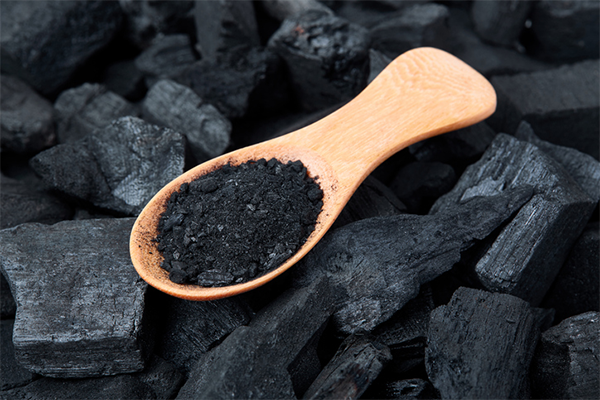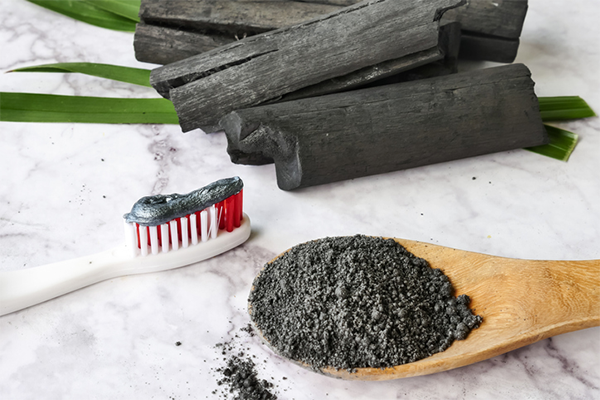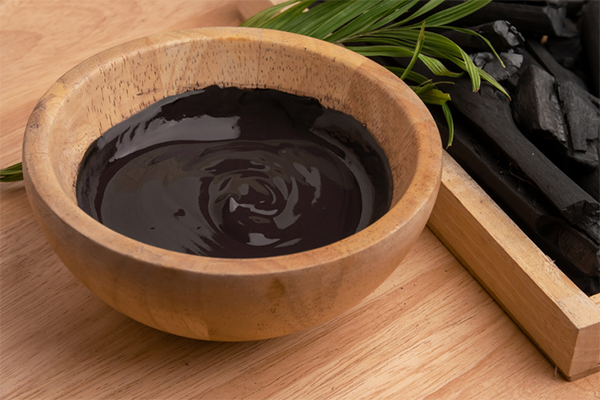The Truth About Activated Charcoal

There’s almost no end to the number of products that claim to “detoxify” the body.
You can buy detoxifying tablets, teas, body washes, bath salts, juices, face masks, powders, tinctures, dry brushes, foot pads, and even shampoos that promise to purge your system of impurities and leave you squeaky clean.
But most of the recent attention has centered on one item in particular: Activated charcoal.
We know — it sounds like something you’d light up to grill steak.
But unlike eating briquettes, which are laced with accelerants and other hazardous chemicals, eating activated charcoal won’t land you in the emergency room.
What Is Activated Charcoal?

Activated charcoal is charcoal that’s oxidized with superheated steam or air to expand its surface area and make it more porous.
That also makes it more absorbent, allowing it to soak up toxins and impurities as it works its way through your system (or so the theory goes).
“The problem with charcoal is that it’s non-specific — it’ll bind to anything it finds absorbable,” said Dr. Kent Olson, medical director of the San Francisco Poison Control System, in an interview with Time. “This might include vitamins and amino acids and other things you actually need in your diet.”
That hasn’t stopped retailers and manufacturers from adding activated charcoal to everything from juices to cosmetics, or selling it straight to consumers in capsules and powders with promises that it cures everything from hangovers to bad breath.
The Benefits of Activated Charcoal: Myths Busted
Unfortunately, the wonderous claims that you might hear about activated charcoal rarely hold up to reality.
Myth 1: Activated charcoal can detoxify your body

The truth: It can — in an emergency.
Studies show that activated charcoal can bind to and remove E. coli and help treat drug overdoses, making it a go-to detoxifier in many emergency rooms.
But timing is critical — activated charcoal needs to be ingested within 2-hours of an overdose for it to be effective, according to a review in the Annals of Emergency Medicine.
After two hours, the body will have absorbed most of the toxins, leaving little for the charcoal to mop up. As for everyday toxins, there isn’t much research to support the ability of activated charcoal to remove them.
Fortunately, your liver and kidneys do a pretty good job of doing that on their own. That’s why all those “detoxes” you hear about might not do exactly what they claim to do.
(In reality, what you might need is just a cleanse.)
Myth 2: Activated charcoal can cure a hangover
The truth: Not really.
While the headache and nausea that come from too many margaritas are symptoms of a drug overdose (yes, alcohol is a drug), activated charcoal won’t help relieve them.
The reason: It doesn’t “absorb” alcohol. “It does not bind well to ethanol or alcohol because of the chemical structure,” Dr. Michael Lynch, medical director for Pittsburgh Poison Center, said in an interview with Today.
Water, aspirin, and a strong cup of coffee are still your best bets. Or, just limiting your alcohol consumption to a moderate amount.
Myth 3: Activated charcoal can whiten your teeth

The truth: The evidence is anecdotal, but many people swear it works. (Independent testing at Beachbody remains inconclusive.)
The theory is that activated charcoal’s natural adhesive qualities allow it to bind with stains from coffee, tea, wine, and other enamel-discoloring substances, and take them with it when you spit it out.
But the benefits stop at stains — if your teeth are naturally yellow, you’ll need to buy a product that contains a bleaching agent, like hydrogen peroxide, or try an in-office treatment from your dentist.
Myth 4: It can cure bad breath
The truth: Activated charcoal can help treat an extremely foul variety of bad breath called trimethylamine, according to a study in The Clinical Biochemist.
But when it comes to chronic halitosis, or acute tuna-fish breath, you’re out of luck.
Myth 5: It can clear up your skin

The truth: Maybe, maybe not.
Cosmetic companies would have you believe that smearing activated charcoal on your face can clear up unsightly blemishes and make your skin “glow,” but science has yet to confirm such benefits.
“Truthfully, there isn’t solid clinical data one way or the other,” dermatologist Dr. Craig Kraffert, told the New York Daily News.
Try it if you want, but don’t be disappointed if your results vary from what you see in commercials.
The 10-Second Takeaway
Whether in pill or powder form, the “detoxifying” benefits of activated charcoal might not be all they’re cracked up to be.
If you’re really looking to purify your body, start by focusing on the food and drink you’re putting into it. Beachbody’s 3-Day Refresh is a quick introduction to eliminating junk from your diet and consuming more whole, nutrient-rich foods.
For something a little longer, check out Beachbody’s Ultimate Reset for a 21-day guide to clean eating – no mysterious substances required.
Intrigued? Check out all the benefits of doing a cleanse.
